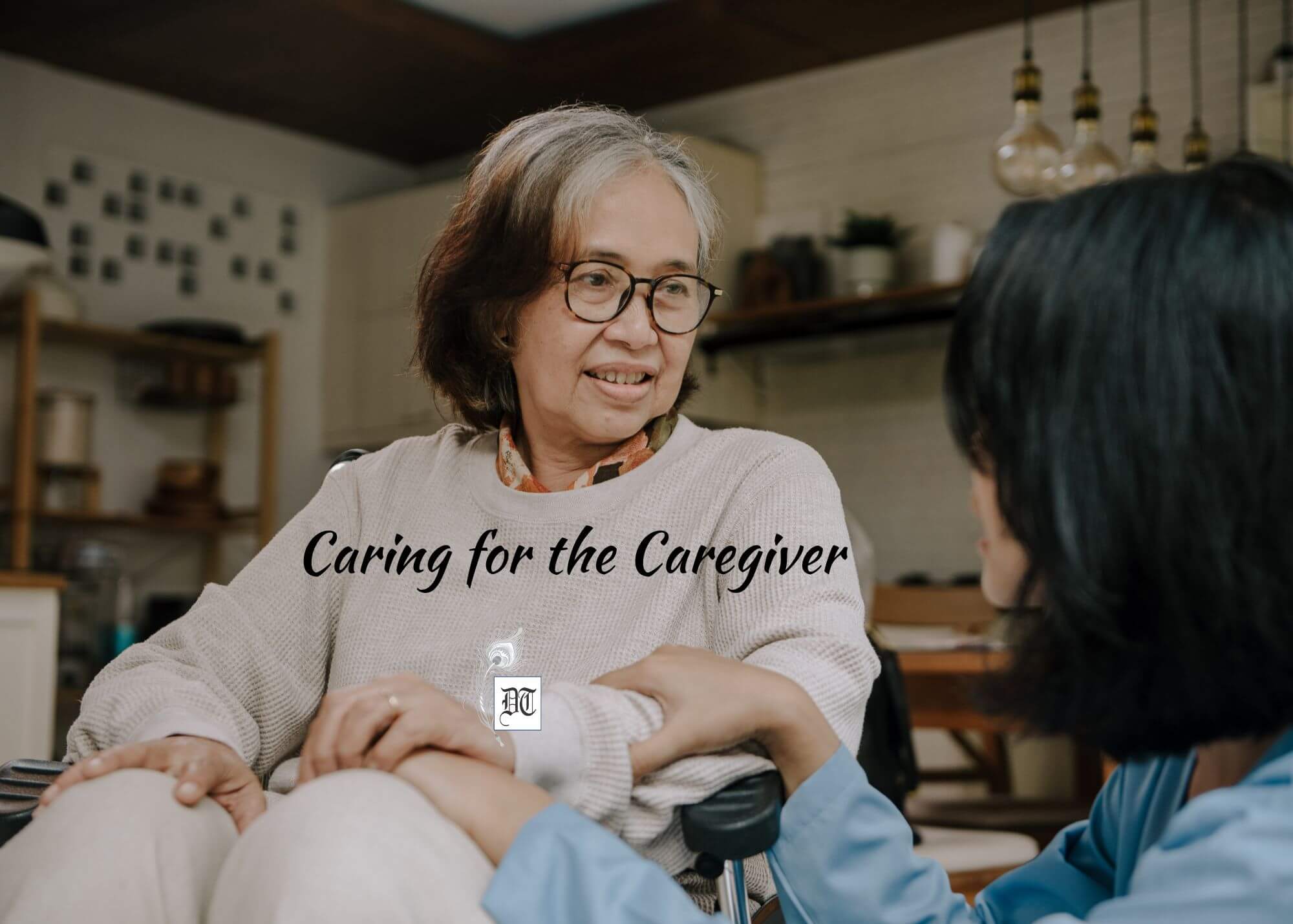It’s easy to get burned out when you’re caring for a loved one, whether it’s a spouse with a chronic illness or a frail older relative. Taking time for yourself every day–even just a few minutes–is one way to help you recharge. Here’s Rita’s practical tips for the caregiver, exclusively for Different Truths.
If you are a caregiver for the elderly, it’s likely you are overworked, overstressed and pulled in different directions every single day. You probably feel exhausted, trying to cope with the constant demands, medical and otherwise, of an elderly loved one. In addition to fatigue, you might also experience guilt. It’s easy to feel you are not doing enough for your loved one or that caregiving is taking away time from other members of your family. If you, as a caregiver, feel stretched thin, it’s possible to develop feelings of resentment toward the person you are looking after. Which is why, it’s important that caregivers take good care of themselves and their physical and emotional health. It’s also important to move past feelings of guilt and inadequacy so caregivers can take better care of their loved ones.
Taking Time Out
It’s easy to get burned out when you’re caring for a loved one, whether it’s a spouse with a chronic illness or a frail older relative. Taking time for yourself every day–even just a few minutes–is one way to help you recharge. You may try yoga before breakfast, slip out for a walk, go to the movies, or pursue any hobby you love. Don’t worry about not being there for your loved one for that brief period of time. That small window of me-time makes you a better caregiver by reducing your stress level.
Plan Your Time
You can’t provide good care if you feel overwhelmed and stressed out every single day. Make a list of all the tasks you need to do in a week, including dressing and bathing a loved one, household chores and scheduling doctor visits. Brainstorm which ones someone else might be able to do. Learn when to say no, and set boundaries so you can take care of your family–and yourself.
Ask for Help
When you realise that your schedule is already overburdened, you can make a list of family, friends, or neighbours to call when you need a break. You can also call Arogya HomeCare (www.arogyahomecare.in) for any medical assistance that will offer you a breather–be it attendants, nurses, physiotherapists, medical equipment or assistance in seeing a medical practitioner. We have geriatric-trained care providers who can make caring for an elderly relative less stressful by taking an elderly relative for a scheduled doctor visit or arranging for diagnostic tests and medicines to be delivered.
Stick to a Routine
A daily routine can be a lifesaver. It can help you feel in control rather than stressed. It lets your loved one know what to expect. That’s especially good for people with dementia. It provides a sense of security and helps them maintain their abilities.
Get Enough Sleep
Most caregivers cite loss of sleep as the main cause for the deterioration of their own health. Relaxation exercises, like deep breathing, may help you at bedtime. If your loved one sleeps during the day but is awake much of the night, try to take naps. You might need to hire an aide or ask a friend or relative to stay with her overnight so you can get a good night’s sleep.
Use Timers and Reminders
Technology can be your best friend. Set up reminders on your smart phone so you are notified when it’s time for the next dose of medicine, next scheduled doctor visit or time for blood test. Pill organisers are a great low-tech option–they allow you to portion meds into little boxes by day, meal, or hour.
Enjoy Some Music
Music and art can spark fun shared moments for you and the person you’re caring for. Familiar music can bring back memories and may lead to clapping or dancing. Art projects should be simple and safe but not too child-like. Painting or making a collage from magazines are two good options. And listening to music or working on an art project can be a great stress reliever for you, too.
Make It a Team Effort
Discuss the latest medical news, daily caregiving tasks, financial concerns, and your need for support with family members. Include everyone who cares for your loved one, including paid helpers. Connect distant family members through a speaker phone or online video chat and follow up with a calendar of tasks, so everyone knows their share of tasks.
Picture design Anumita Roy





 By
By
 By
By

 By
By